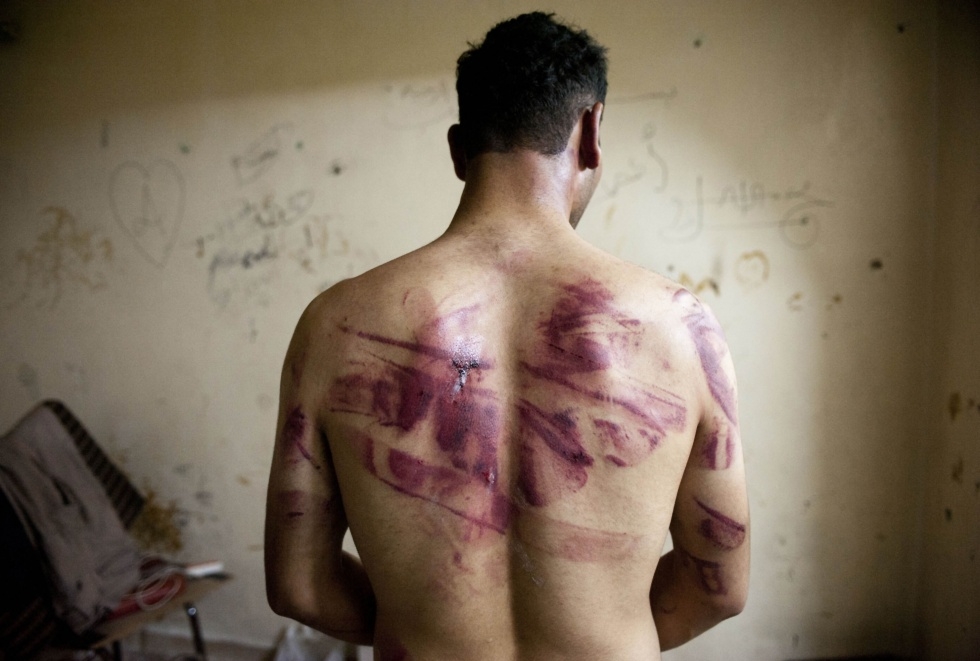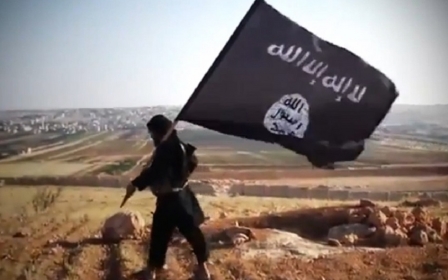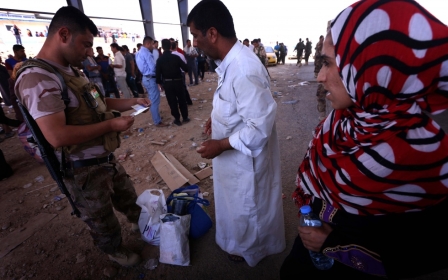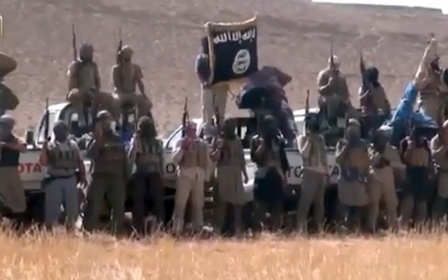Prosecutors: Still possible to prosecute Syria war crimes despite veto

International prosecutors said on Tuesday it is still possible to go after those responsible for war crimes in Syria despite Russian and Chinese efforts to block cases being referred to the International Criminal Court.
During the opening speech of a UN panel discussing Syria war crime reports on Tuesday, Mehmet Ferden Carikci - Turkey's permanent representative at UN's Geneva office - said that tens of thousands of people, including women and children, were subject to torture in Syria's prisons.
"What the world encounters in Syria is a unique form of barbarism," Carikci said.
A series of photographs exhibiting 11,000 detainees tortured in the hands of the Syrian government was discussed at the panel in Geneva, which was held by the United Nations Human Rights Council.
"Just because we have had one veto in the (UN) Security Council, this should not stop any of us from moving forward and seeking justice for the people of Syria," said David Crane, the former international prosecutor who indicted Liberian president Charles Taylor.
China and Russia last month vetoed a draft UN Security Council resolution to refer Syria to the ICC for crimes committed by both sides in the three-year civil war.
It was the fourth time the two countries have blocked Western resolutions related to the conflict, which is estimated to have killed more than 162,000 people.
Crane insisted there were other options for seeking justice, including through special national or regional courts.
"All options are on the table," he said. "I know it's a natural desire to seek quick justice. But justice will be done, over time," he said.
Desmond Lorenz de Silva, another former chief prosecutor of the Special Court for Sierra Leone, told AFP that a number of special courts - including the famous Nuremberg trials against suspected Nazi war criminals after World War II - were created outside the UN system.
"It's already been done. Justice will be done in this case," he said.
Both Crane and de Silva were among the legal experts behind the so-called "Caesar Report" released at the start of the year, containing some 55,000 photographs depicting the tortured and abused bodies of around 11,000 people it said had died in Syrian jails between 2011 and 2013.
De Silva said at the panel that they verified the photographs' authenticity.
"Caesar", is the codename of a defector who served 13 years in the Syrian army. He gave the photos of the tortured and executed detainees to an inquiry team based in the UK.
Crane and de Silva maintain the report and the horrifying pictures, depicting twisted, mangled and emaciated bodies provided clear proof of war crimes and crimes against humanity.
One victim confirmed their veracity at the panel.
"We didn't see pictures. We saw real people like this in front of us," said Ala Al Cizawi, adding she had been beaten, tortured with electricity and hung from her arms for 12 hours at a time in detention centres last year.
Crane told AFP his organisation, The Syrian Accountability Project, was drawing up full indictments that could quickly be implemented.
Washington's new ambassador to the UN Human Rights Council, Keith Harper, said the Caesar report - funded by Qatar - provided conclusive proof of atrocities.
"These photos are a smoking gun," he said after viewing some of the horrifying images of skeletal, bruised bodies, many with their eyes gauged out.
A Russian envoy meanwhile blasted the report, suggesting it had been doctored to place all blame for abuses on the regime of President Bashar al-Assad.
Thousands killed and forced to leave homes since onset of civil war
Syria has been plagued by an ongoing civil war since 2011 in which more than 100,000 people have been killed and close to half of the 22-million population displaced, according to the UN.
Heavy fighting
Meanwhile, fighting is raging in eastern Syria as an extremist group rooted in neighbouring Iraq pushes a fresh bid to create an "Islamic state" along the border, an activist group said Tuesday.
Since the Islamic State of Iraq and Greater Syria (ISIL) launched a new offensive in Deir Al-Zor province 40 days ago, 634 people, mainly fighters, have been killed, the Syrian Observatory for Human Rights said.
At the same time, 130,000 people have been forced to leave their homes, with 39 civilians killed from shelling in the fighting.
The Britain-based Observatory said 354 of the dead were members of the al-Nusra Front - Syria's official al-Qaeda arm - and allied militant groups.
And 241 were members of ISIL.
The group was once welcomed by some Syrian rebels, but earned the rebellion's wrath because of its systematic abuses and quest for hegemony.
Even al-Nusra turned against ISIL, after its Iraqi chief, Abu Bakr al-Baghdadi, sought to take over the group.
Fighting by rebel groups and Nusra against ISIS has killed more than 6,000 people since it began in early January, according to the Observatory.
Syria's war has forced nearly half the population to flee their homes.
New MEE newsletter: Jerusalem Dispatch
Sign up to get the latest insights and analysis on Israel-Palestine, alongside Turkey Unpacked and other MEE newsletters
Middle East Eye delivers independent and unrivalled coverage and analysis of the Middle East, North Africa and beyond. To learn more about republishing this content and the associated fees, please fill out this form. More about MEE can be found here.




